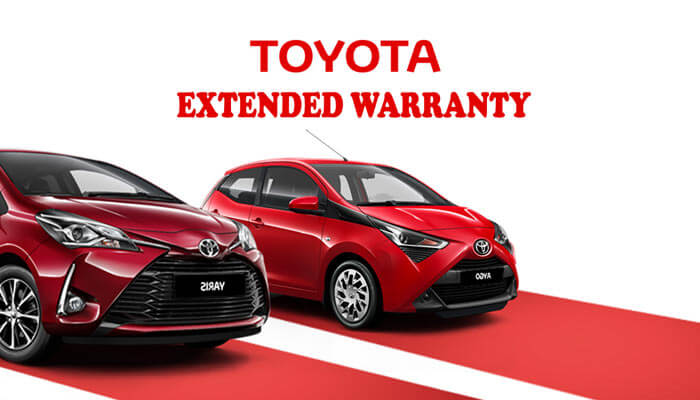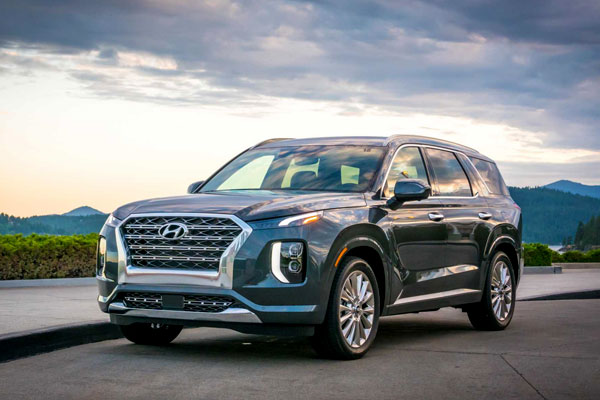What Voids a Car Warranty? – 10 Things
While almost every car owner understands the importance and limits of car insurance, that is not usually the case with what voids car warranty. Every new car comes with a warranty that protects the owner against excessive repair and replacement costs several years after purchase. We recommend that you purchase the best warranty cover for your car for peace of mind and minimal maintenance costs before driving the car from the dealership. That said, keep in mind that it is a waste of resources to pay for the best warranty and only end up voiding it.
The dealership will only sell you the benefits of the warranty, and it is up to you to enquire about what can void the warranty. Most warranty providers have different terms and conditions, and it is a mistake to assume what was working with a different brand will work with your new car. Some dealers put performance upgrade as something that can void the protection while others have an exemption.
Always read the terms and conditions of your cover to find what it covers and things that can void the warranty. The word of the salesperson should not be adequate to make you put pen to paper. We will help you understand a warranty and what voids car warranty to ensure that you get the best value from your investment.
Car Warranty Basics: Every Person Should Know
- All new cars come with a factory warranty. The warranties cover separate parts of your vehicle depending on whether it is a standard or powertrain warranty. Look at what is and is not covered before you can upgrade your warranty.
- Manufacturer warranties cover several components of your car and can be categorized into separate covers that include basic, emissions, drive train, and corrosion warranties. Every package has its own terms and conditions.
- Every car warranty lasts a predetermined number of years or mileage. Different car manufacturers have varying warranty lengths that include four years or 50,000 miles for BMW, Volvo, and Mercedes for basic, and powertrain warranty options. Hyundai and Kia offer five years or 60,000 miles basic warranty and, ten years or 100,000 miles powertrain warranty packages. Nissan, Ford, Subaru, and Toyota have the shortest basic warranty of three years or 36,000, and five years or 60,000 miles.
- Most car manufacturers will offer you a chance to extend your warranty at the expiry of the original cover. It is always a good idea to prolong the cover if you are happy with your current warranty. The extended warranty usually offers the same cover as the factory option, but you should review the terms and conditions to confirm what the company covers. If you are not interested in extending the manufacturer warranty, you can shop for the best third-party cover for extended coverage.
- The mileage and coverage years are not the only things you should worry about when choosing a warranty. Read the terms and conditions to find things that can void the warranty. Knowing what voids car warranty will help to protect your car. You can a warranty fully or partially, depending on the terms and conditions of your contract.
Essential Elements Of A Good Factory Warranty
Although all new cars come with a factory warranty, it is worth noting that they do not offer the same benefits. Supercars have the best warranty covers that include an extended duration of up to eight years and do not have mileage limits. The best warranty cover should offer full protection and added features that give you peace of mind as you commute. The terms and conditions should also be clear to help you know what voids car warranty. Some of the minimum warranty requirements you should look out for include:
- Duration and mileage – Keep in mind that factory warranties have varying duration, with most manufacturers offering four or five years. The mileage limit is between 40,000 and 60,000 miles for most car manufacturers, but you can get warranties that cover up to 100,000 miles. A prolonged warranty cover with more mileage is better. That said, the minimum acceptable duration should be three years or 36,000 miles.
- Powertrain coverage – The manufacturer should give you an option for a powertrain warranty that exceeds the standard cover. It should cover all parts under a basic warranty and include additional components like transmission, engine, and drive axles. Most powertrain warranty covers have an extended period and mileage than a basic warranty.
- Corrosion warranty – Ensure that the package offers corrosion protection as it is difficult and expensive to repair. Some manufacturers offer a corrosion warranty that exceeds the powertrain cover. It is now common to find manufacturers with longer 100,000-mile coverage and unlimited duration corrosion warranty.
- Roadside assistance coverage – Almost every manufacturer offers roadside assistance on new cars. However, the services vary among providers with some offering roadside rescue and key-lock assistance while others go the extra mile to prove gas fill and tax hire payment for up to three days. You may have to pay an additional amount to get some of the extra benefits, depending on the terms and conditions of your contract. Nevertheless, you must learn what voids car warranty roadside assistance as some companies have location coverage limitations.
What Voids a Car Warranty? – 10 Things That Will Void Vehicle Warranty
The benefit of buying a new car is the manufacturer’s warranty that covers the repair costs and roadside assistance for peace of mind as you commute. The package will offer protection for the contract duration and within the mileage limit.
Nevertheless, a vehicle warranty may fail to protect you if you fail to follow the terms and conditions of the provider. We recommend that you discuss with your car manufacturer what voids car warranty before you sign the document. You should also read the terms and conditions of your warranty before taking your car for the first drive to avoid mistakes that can void the warranty. Some of the actions and things that can void a car warranty include:
1. Car misuse
Vehicle misuse can void the warranty. Read the terms and conditions of your warranty to find what the manufacturer considers misuse. On most occasions, anything outside the normal car use can be viewed as misuse and may void the entire warranty. Discuss with your warranty provider what they consider as car misuse as the interpretation is at the discretion of the warranty administrator. Things like racing, off-roading, and overloading can void the warranty.
2. Flooding and natural disasters
A car warranty does not offer protection against flooding or natural disasters as it only covers manufacturer defects. Do everything possible to keep your car away from environmental or natural disasters that can void your warranty like fires, earthquakes, and hurricanes.
3. Vehicle modifications
Most warranty plans cover the car in its original state. Any modification or upgrade not approved by the manufacturer can void the warranty. Things like performance upgrades and custom modifications can partially void the warranty. However, the conditions vary from one warranty provider to another as some companies may cover performance improvement parts by the manufacturer while others do not support upgrades. It is also worth noting that some warranty administrators may deny the warranty if a covered part is damaged by the modification or upgrade part.
4. Poor maintenance
Always follow the manufacturer’s maintenance to ensure that your car is in good condition and keep receipts as proof. Failure to keep up with the vehicle maintenance can void the warranty as the administrator can argue that your failure to maintain the car properly caused the failure. Car neglect is a major reason why car manufacturers deny warranty. Keeping receipts or taking your car to the dealership for maintenance can help to prove that the failure is not a result of neglect.
5. Total loss
Getting into a severe accident that totals your car will void your entire warranty. A car with a salvage title is no longer supported by the manufacturer’s warranty. Before buying a used car, carry out the vehicle’s history search to ensure it was not involved in a major accident.
6. Tampering with odometer
The odometer plays an important role in determining the age and use of your car. Some people temper with odometer to influence the car’s price, which results in voiding the warranty.
7. Use of improper fluids
Always use the approved fluids for your car. Check the owner’s manual for the correct oil, gas, and other fluids as the use of unapproved fluids can be a ground for the manufacturer to deny you warranty cover.
8. Suspension modifications
Suspension modifications like the use of an extreme lift or lower kits can compromise the vehicle’s platform and trigger other problems like drivetrain, suspension, and steering issues. The warranty provider will not cater to any damage that occurs as a result of alterations.
9. Use of non-conventional tire or wheel combinations
Avoid using aftermarket wheels and tires that can compromise vehicle undercarriage components, alignment angles, and drivetrain components as it will void the warranty.
10. Towing
Towing a trailer adds pressure to your car’s engine and performance. Vehicles with towing capability come with improved cooling system capacity, reinforced rear frame area, and beefed-up suspension to support the additional weight. Avoid towing a trailer with a car that is not designed to tow as it can void the warranty.
Conclusion
Keep in mind that what voids car warranty is a complex topic that requires a thorough understanding of your cover. We advise that you thoroughly review the warranty offer and ask for clarifications from the dealer to ensure that you do not void your protection.




